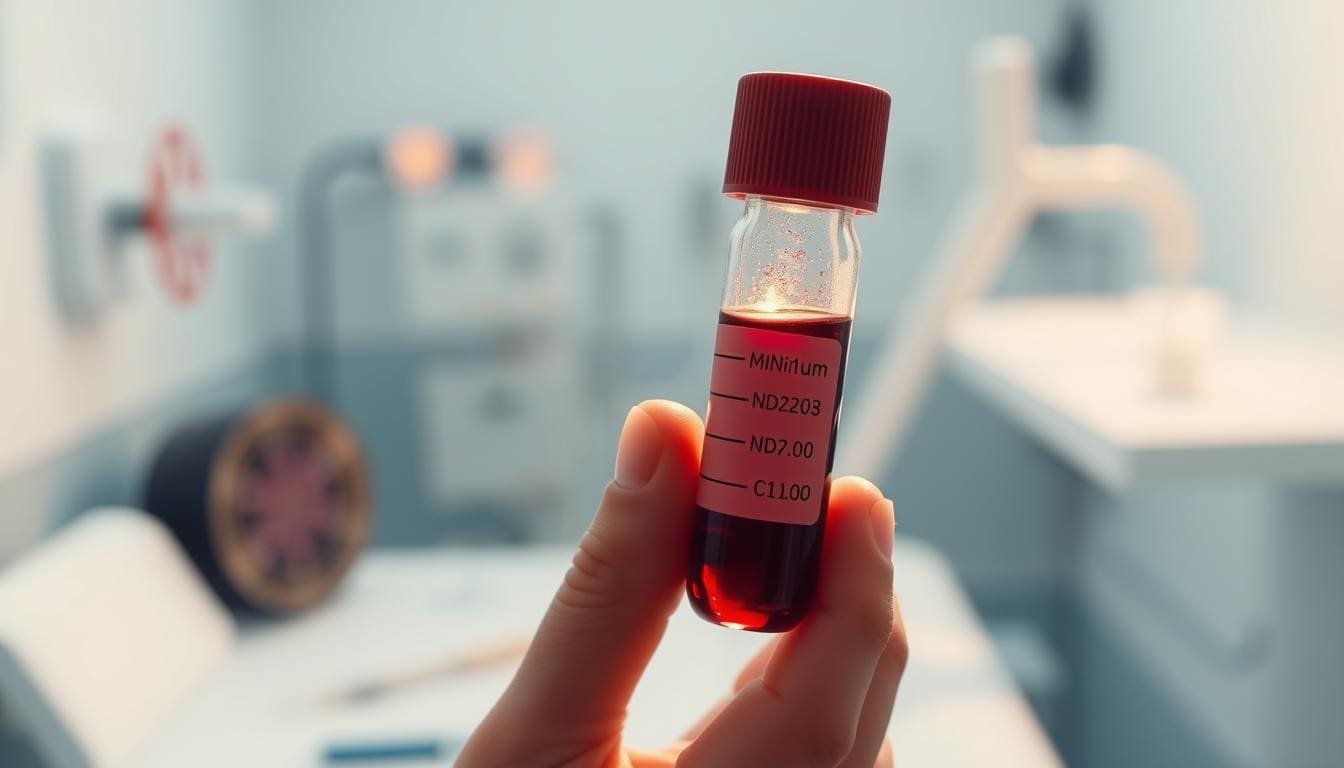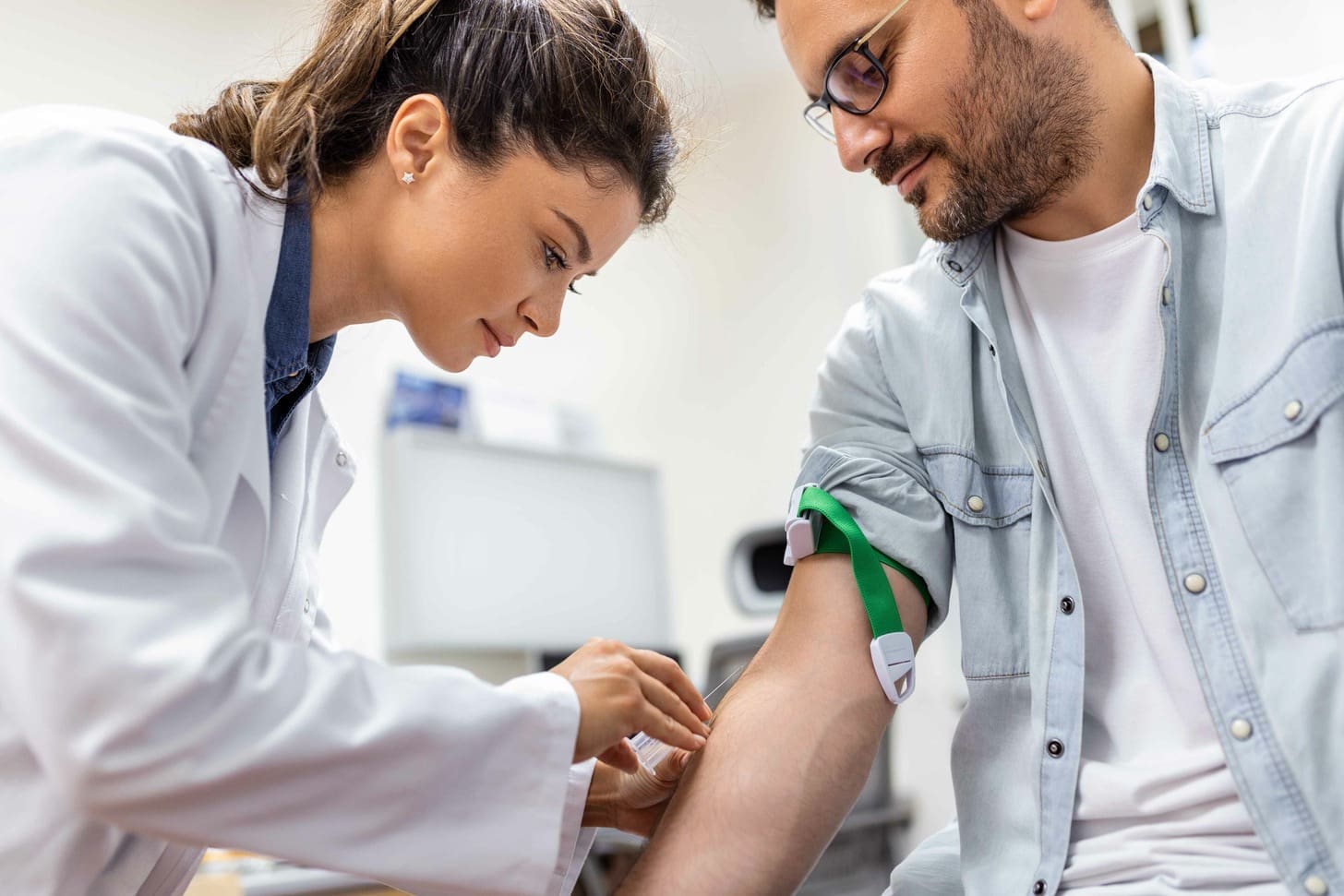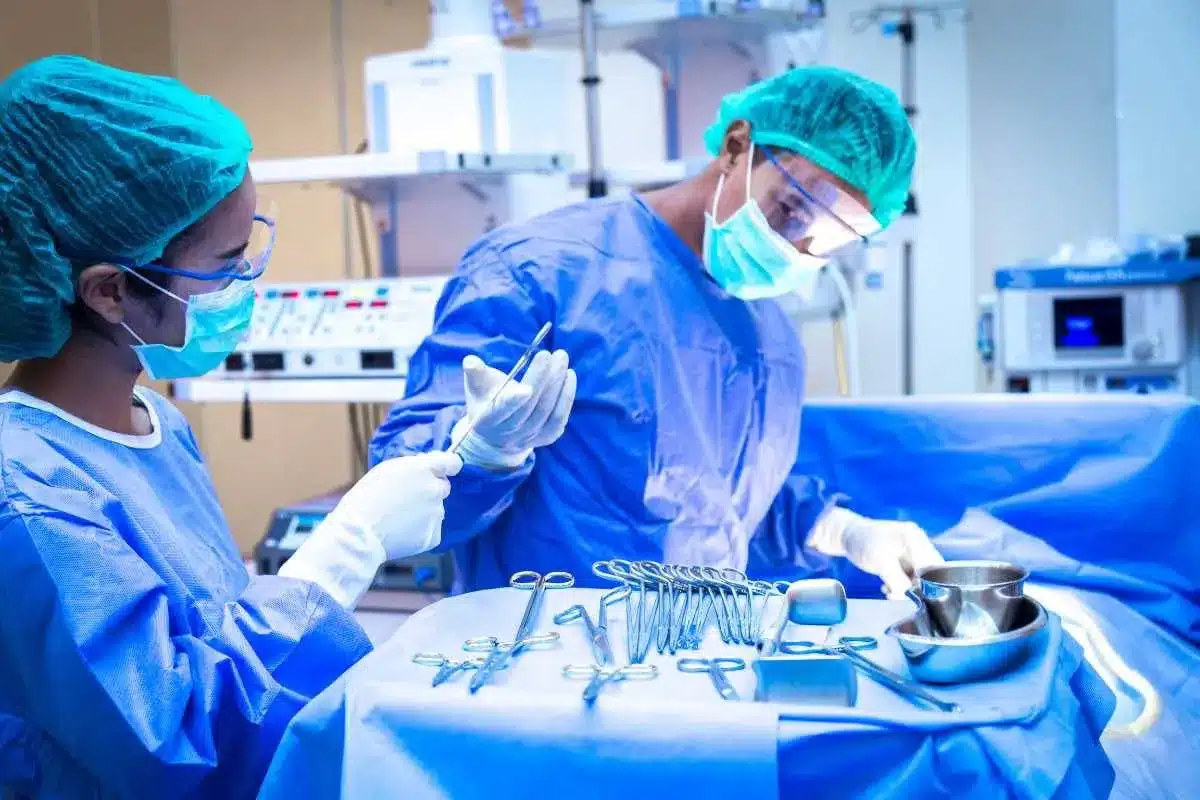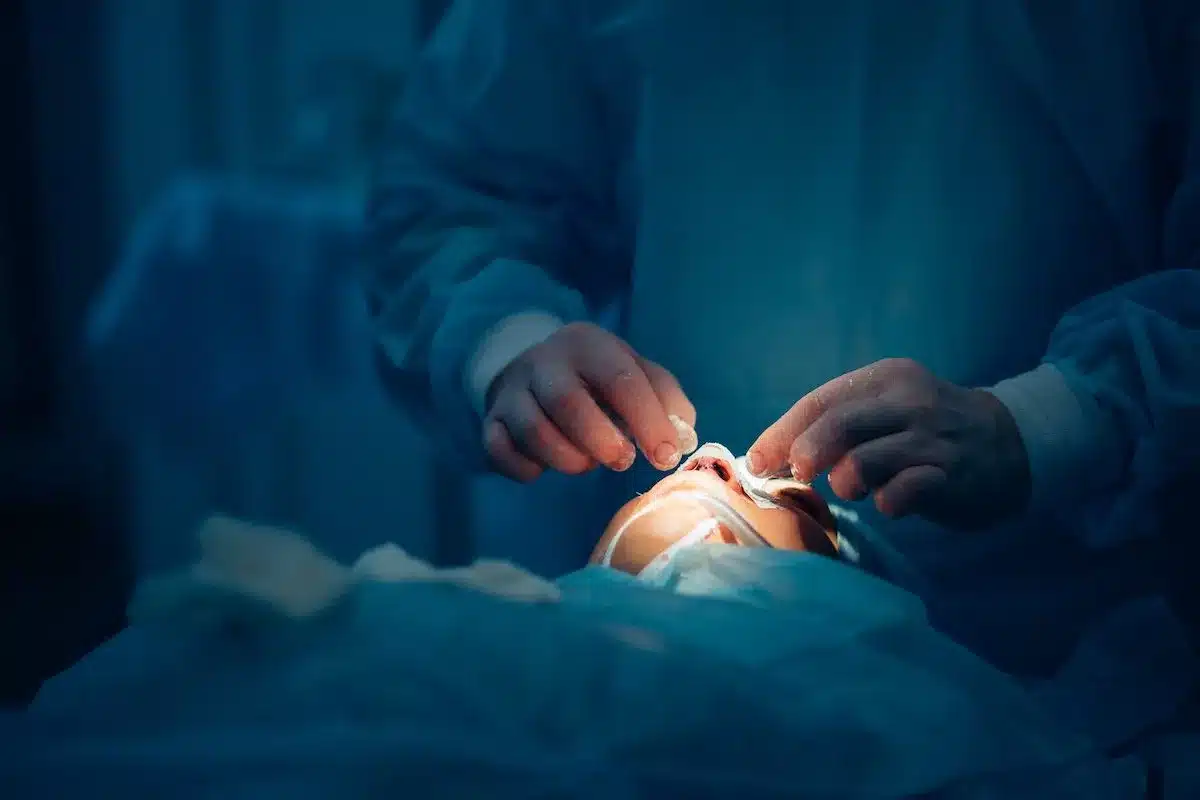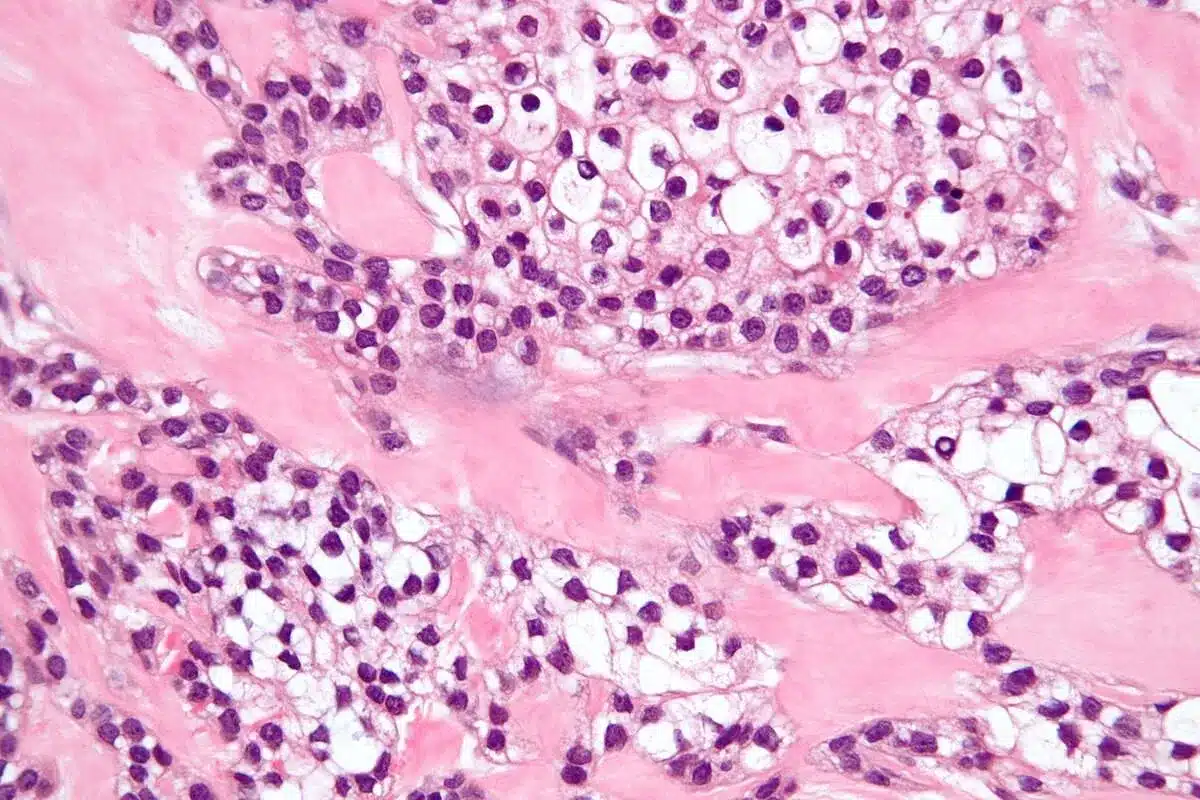Can stomach cancer cause itchy skin? Many people are unaware that stomach cancer can present in unusual ways.. One of these is itchy skin. This connection can confuse both patients and doctors.
We will look into how stomach cancer and itchy skin are connected. We’ll explore the reasons behind this and what it means for those affected.
Key Takeaways
- Understanding the link between stomach cancer and itchy skin
- Recognizing the symptoms of stomach cancer
- The importance of early diagnosis and treatment
- How itchy skin can be a sign of an underlying health issue
- The role of medical professionals in identifying stomach cancer
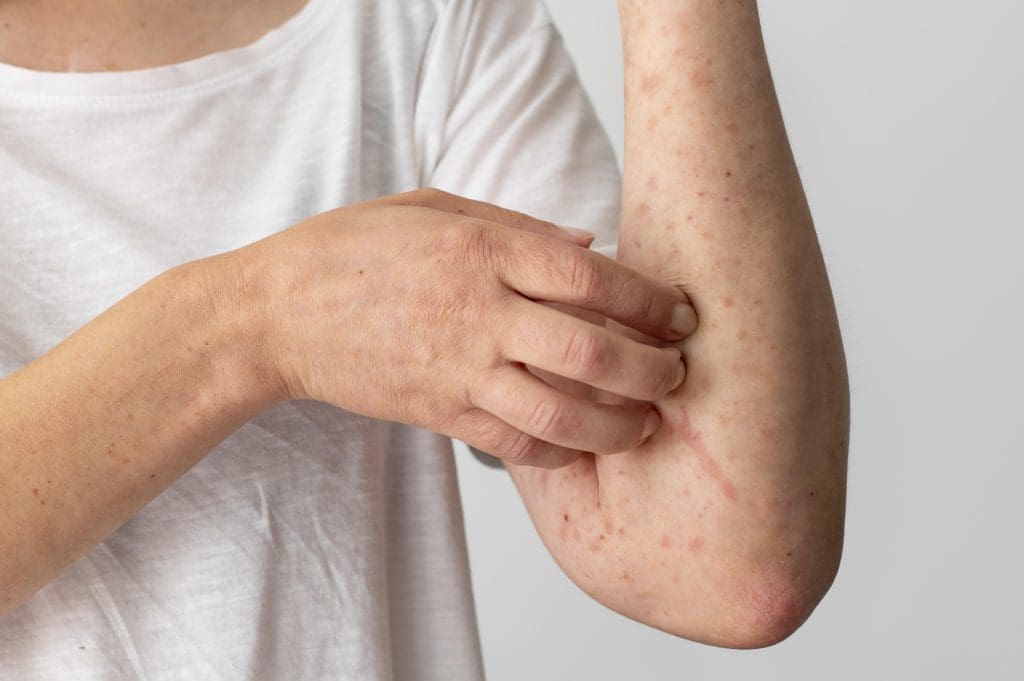
Understanding Stomach Cancer: An Overview
Stomach cancer is a complex disease that needs a deep understanding. We will look into its basics, including how common it is, its statistics, and the different types.
What is Stomach Cancer?
Stomach cancer, also called gastric cancer, is when cells in the stomach lining grow abnormally. It often starts in the stomach lining and can spread to other parts of the stomach and even other organs. Gastric adenocarcinoma is the most common type, coming from glandular cells that make mucus and digestive enzymes.
Prevalence and Statistics
Stomach cancer is a big health problem worldwide. Its occurrence varies a lot in different places and groups. It’s the fifth most common cancer globally and the third leading cause of cancer deaths. Countries like Japan and Korea have higher rates due to genetics and diet.
Types of Stomach Cancer
There are many types of stomach cancer, each with its own traits and treatment options. The main types are:
- Gastric Adenocarcinoma: The most common type, making up about 90% of cases.
- Gastrointestinal Stromal Tumors (GISTs): Rare tumors in the stomach wall’s connective tissue.
- Lymphoma: Cancer that starts in the stomach’s immune cells.
- Carcinoid Tumors: Slow-growing tumors from hormone-producing cells.
| Type of Stomach Cancer | Description | Prevalence |
| Gastric Adenocarcinoma | Arises from glandular cells, most common type | About 90% |
| Gastrointestinal Stromal Tumors (GISTs) | Rare tumors in connective tissue | Less than 1% |
| Lymphoma | Cancer starting in immune cells | About 5% |
| Carcinoid Tumors | Slow-growing, hormone-producing cell tumors | Less than 1% |
Knowing about these types and their features is key for making good treatment plans and better patient results.
Female Stomach Cancer: Gender-Specific Considerations
Stomach cancer hits both men and women, but it shows different signs and grows in different ways in each gender. We’re learning how these differences help us create better ways to find and treat stomach cancer in women.
How Stomach Cancer Affects Women Differently
Research shows that stomach cancer rates and death rates differ between men and women. Women get stomach cancer less often than men, but the tumors they get are different. We must study these differences to give women with stomach cancer the best care.
Unique Risk Factors for Women
Some risk factors for stomach cancer are more common or special for women. For example, Helicobacter pylori infection is a big risk factor, and its impact can vary by gender. Also, what women eat, their lifestyle, and their genes can affect their risk of getting stomach cancer.
Hormonal Influences on Gastric Cancer
Studies hint that hormones might play a part in stomach cancer. The role of estrogen and other female hormones is being studied. Knowing how hormones affect stomach cancer in women could help us find new ways to treat it.
Looking into how stomach cancer affects women differently helps us understand the disease better. This knowledge can lead to more focused and effective treatments for women. It will help improve their health and quality of life.
Common Symptoms of Stomach Cancer
Knowing the symptoms of stomach cancer is key to getting help early. We’ll cover the early signs, advanced symptoms, and those specific to women.
Early Warning Signs
In the early stages, stomach cancer symptoms can be vague. They might seem like other stomach problems. Common signs include:
- Indigestion or a burning sensation in the stomach
- Loss of appetite
- Mild nausea
- A feeling of fullness or bloating
These signs are often mild and can be mistaken for other issues.
Advanced Symptoms
As stomach cancer gets worse, symptoms get more severe. Advanced symptoms include:
- Persistent and severe abdominal pain
- Vomiting, sometimes with blood
- Significant weight loss
- Difficulty swallowing
These signs mean the cancer is at a more serious stage. You should see a doctor right away.
Symptoms Specific to Women
While men get stomach cancer more often, women should watch for symptoms too. Some symptoms are more noticeable or relevant to women. These include:
| Symptom | Description |
| Abdominal discomfort | Women may feel ongoing pain or discomfort in their abdomen. |
| Changes in bowel habits | Women might notice changes in their bowel movements or habits. |
| Fatigue | A general feeling of tiredness or weakness can be a symptom. |
Women should pay attention to these symptoms and see a doctor if they don’t go away.
The Connection Between Stomach Cancer and Skin Manifestations
Stomach cancer can affect the body in unexpected ways, including the skin. The link between cancer and skin health is complex. It involves many biological processes and paraneoplastic syndromes.
Paraneoplastic Syndromes Explained
Paraneoplastic syndromes are rare disorders caused by an immune response to cancer. In stomach cancer, these syndromes can show up in the skin. Paraneoplastic syndromes are a key connection between stomach cancer and skin symptoms, showing how cancer affects the whole body.
How Cancer Can Affect the Skin
Cancer, including stomach cancer, can impact the skin in many ways. It can cause paraneoplastic syndromes, lead to skin metastasis, or result in various skin conditions. Symptoms can range from mild to severe, including itching, rashes, or changes in skin texture.
Scientific Evidence on the Connection
Research has found a strong link between stomach cancer and skin symptoms. Studies have identified several paraneoplastic syndromes linked to gastric cancer. This highlights the need to consider skin symptoms in diagnosing and treating stomach cancer. Understanding this connection can lead to earlier diagnosis and more effective treatment strategies.
By studying the link between stomach cancer and skin health, we can better understand the disease. This knowledge is key for creating care plans that address both the cancer and its systemic effects.
Can Stomach Cancer Cause Itchy Skin?
Stomach cancer and itchy skin are linked through how our body reacts to cancer. Itchy skin, or pruritus, can be a sign of many health issues. Research is focusing on how stomach cancer might cause it.
Mechanisms Behind Cancer-Related Itching
Itching from cancer comes from different sources. Tumors can send out chemicals that make us itch. For stomach cancer, these chemicals include histamine and serotonin.
The body’s fight against cancer also plays a role. This fight can make us feel itchy.
Distinguishing Cancer-Related Itching from Other Causes
Itchy skin can mean many things, including cancer. It’s key to tell the difference to get the right treatment. Cancer itching doesn’t go away with usual treatments.
It also often comes with other signs like weight loss or tiredness. These aren’t usual for just skin problems.
When to Be Concerned About Persistent Itching
Itchy skin that lasts and is bad should be checked by a doctor. If it’s really bad or keeps you from living your life, see a doctor. Early treatment can make a big difference.
Getting checked for itchy skin is very important. It could mean you have something serious like stomach cancer. Knowing about cancer itching and when to see a doctor can help keep you healthy.
Other Skin Manifestations Associated with Stomach Cancer
Stomach cancer can show up in different ways, not just in the stomach. It can also affect the skin. These signs can be the first clue that something is wrong, making it key to know about them.
Rashes and Discoloration
Rashes or skin discoloration are common signs of stomach cancer. They can be mild or severe. For example, Leser-Trélat sign is a rare condition where many seborrheic keratoses appear suddenly. It’s linked to stomach cancer and other cancers.
Changes in Skin Texture
Stomach cancer can also change how the skin feels. It might get thicker or develop lesions. Tripe palms is a rare condition where the palms become thick and velvety. It’s a sign of internal cancers.
Rare Dermatological Presentations
Some people with stomach cancer may have rare skin issues. These include acquired ichthyosis, which makes the skin dry and scaly. Or florid cutaneous papillomatosis, where many skin papillomas appear suddenly.
| Dermatological Condition | Description | Association with Stomach Cancer |
| Leser-Trélat sign | Sudden onset of multiple seborrheic keratoses | Linked to internal malignancies, including stomach cancer |
| Tripe palms | Thickened, velvety texture on the palms | Associated with internal cancers |
| Acquired ichthyosis | Dry, scaly skin | Observed in some cases of stomach cancer |
It’s important to spot these skin signs early. If you notice anything unusual, see a doctor right away. They can check and help manage stomach cancer.
Risk Factors for Developing Stomach Cancer
Knowing the risk factors for stomach cancer is key to preventing and catching it early. We’ll look at the different factors that lead to this disease. This way, people can take steps to lower their risk.
Helicobacter Pylori Infection
Helicobacter pylori (H. pylori) infection is a big risk for stomach cancer. This bacterium can lead to chronic gastritis and raise the risk of gastric cancer. Studies show getting rid of H. pylori can lower the risk of gastric cancer, mainly in high-risk groups.
Dietary and Lifestyle Factors
What we eat and how we live also affects our risk of stomach cancer. Eating a lot of salt and not enough fruits and veggies can up the risk. Smoking and drinking too much alcohol also increase the risk. We suggest eating a balanced diet full of antioxidants and living a healthy lifestyle to reduce these risks.
| Dietary Factor | Risk Level |
| High salt intake | Increased risk |
| Low fruit and vegetable consumption | Increased risk |
| Smoking | Significantly increased risk |
| Excessive alcohol consumption | Increased risk |
Genetic Predispositions
Genetics can also play a part in stomach cancer risk. People with a family history of gastric cancer are at higher risk. Certain genetic syndromes, like hereditary diffuse gastric cancer, also raise the risk. We stress the importance of genetic counseling for those with a strong family history.
Environmental Exposures
Being exposed to certain environmental factors, like dust and chemicals at work, can increase stomach cancer risk. We advise following safety rules and regulations to avoid harmful substances.
By knowing and tackling these risk factors, we can lower stomach cancer rates. This helps improve outcomes for those with the disease.
Diagnosing Stomach Cancer: From Symptoms to Confirmation
Diagnosing stomach cancer is a detailed process. It starts with screening and ends with confirmatory tests. Knowing this can help patients understand their journey better.
Initial Screening Methods
The first step is to look at the patient’s medical history and risk factors. We check for signs like persistent pain, unexplained weight loss, or trouble swallowing.
Then, a physical exam is done. This checks for any unusual lumps or tenderness in the abdomen.
Blood Tests and Biomarkers
Blood tests are used to help find stomach cancer. They look for biomarkers like carcinoembryonic antigen (CEA) and carbohydrate antigen 19-9 (CA 19-9). These tests, along with others, help confirm a diagnosis.
Imaging Techniques
Imaging tests are key in diagnosing stomach cancer. CT scans, MRI, and PET scans help us see the stomach and nearby tissues. They show tumors and how far the disease has spread.
Endoscopy and Biopsy
Endoscopy and biopsy are the final steps. An endoscopy lets us see the stomach lining with a camera. If we find something suspicious, a biopsy is done to take tissue samples.
The biopsy results are very important. They confirm cancer and help figure out the type and stage. This information guides treatment plans.
The Role of Colonoscopy in Stomach Cancer Detection
Colonoscopy is a common test, but many don’t know its role in finding stomach cancer. It’s mainly for checking the colon, not the stomach. This leads to a big misunderstanding about its use in stomach cancer detection.
Can a Colonoscopy Detect Stomach Cancer?
A colonoscopy looks at the colon and rectum, not the stomach. So, it’s not good for finding stomach cancer. Stomach cancer diagnosis usually needs endoscopy, which lets doctors see the stomach lining directly.
Appropriate Diagnostic Tests for Stomach Concerns
For stomach cancer worries, better tests than colonoscopy exist. These include:
- Endoscopy with biopsy
- Imaging tests like CT scans or MRI
- Barium swallow studies
These help find stomach cancer accurately and see how far it has spread.
When to Request Specific Tests
If you have ongoing stomach pain, trouble swallowing, or unexplained weight loss, see a doctor. They’ll pick the best tests for you based on your symptoms and health history. Ask why they choose a certain test; knowing helps you feel better and get the right treatment.
Choosing the right tests for stomach cancer is key. It ensures patients get the correct diagnosis and care.
Early Detection Strategies for Female Stomach Cancer
Women can take steps to find stomach cancer early. This can greatly improve treatment success. Early detection is vital in fighting this disease.
Self-Assessment Techniques
Knowing your body is important. Women should learn self-assessment techniques to spot symptoms early. Look out for ongoing indigestion, stomach pain, or unexplained weight loss.
- Regularly check for unusual bloating or discomfort in the upper abdomen.
- Be mindful of changes in appetite or difficulty swallowing.
- Note any unusual fatigue or weakness that persists.
When to Seek Medical Attention
Knowing when to seek medical help is key. If you have symptoms like these, see a doctor:
- Persistent symptoms that last more than a few weeks.
- Severe abdominal pain or vomiting blood.
- Unexplained weight loss or loss of appetite.
Seeing a doctor early can lead to quick diagnosis and treatment.
Screening Recommendations for High-Risk Women
Women at higher risk need regular screening. This includes those with a family history of stomach cancer, Helicobacter pylori infection, or certain genetic syndromes.
Talk to your healthcare provider about the right screening schedule. Screening methods include:
- Endoscopy to examine the stomach lining.
- Imaging tests like CT scans.
- Blood tests to check for certain biomarkers.
By being proactive and informed, women can improve their fight against stomach cancer. Regular self-assessments and screenings are key in early detection.
Treatment Options for Stomach Cancer in Women
The treatment for stomach cancer in women has improved a lot. Each patient’s case is different. So, treatments are made just for them, based on their cancer’s type and their health.
Surgical Approaches
Surgery is a key treatment for stomach cancer, mainly if it’s in one place. Surgical resection means taking out the stomach part with cancer and nearby lymph nodes. Sometimes, parts of the esophagus or small intestine are removed too, if cancer has spread there.
We look at the cancer’s stage, the patient’s health, and what they want when planning surgery.
Chemotherapy Protocols
Chemotherapy uses drugs to kill cancer cells. It’s often used with surgery or radiation. Neoadjuvant chemotherapy is given before surgery to make the tumor smaller. Adjuvant chemotherapy is after surgery to get rid of any left-over cancer cells.
We make chemotherapy plans based on the cancer’s stage and the patient’s health.
Radiation Therapy
Radiation therapy kills cancer cells with high-energy beams. It can be used before or after surgery. We often mix it with chemotherapy for better results.
Targeted and Immunotherapy Options
Targeted therapy uses drugs that only hit cancer cells, protecting normal cells. Immunotherapy boosts the body’s immune system to fight cancer better. We use these for advanced stomach cancer or when other treatments don’t work.
Gender-Specific Treatment Considerations
While treatments for stomach cancer are similar for men and women, there are differences. Some chemotherapy drugs can cause more side effects in women, like hair loss or nerve damage.
We consider these differences when planning treatments. We make sure the plan fits the individual’s needs and health.
Prevention Strategies and Lifestyle Modifications
Understanding risk factors and taking action can lower stomach cancer chances. Prevention is key in fighting this disease.
Dietary Recommendations
Eating fruits, vegetables, and whole grains can help prevent stomach cancer. Foods high in antioxidants and fiber are good. Try to eat less processed and salty foods, as they increase risk.
H. Pylori Management
Managing H. pylori infection is important to prevent stomach cancer. This means antibiotic treatment to get rid of the bacteria. People at high risk should get tested for H. pylori.
Regular Screening for High-Risk Individuals
Screening is essential for those with a family history of stomach cancer or other risks. Early detection through screening can greatly improve treatment results.
Healthy Lifestyle Practices
Practicing a healthy lifestyle, like not smoking and keeping a healthy weight, can lower risk. Regular physical activity is also good.
By following these prevention strategies and lifestyle changes, people can greatly reduce their risk of stomach cancer.
Living with Stomach Cancer: Patient Experiences and Management
Living with stomach cancer means managing symptoms, adjusting nutrition, and getting emotional support. It’s key to understand these aspects to improve life quality for patients.
Managing Skin-Related Symptoms
Skin symptoms like itching can be tough for stomach cancer patients. Effective management starts with finding the cause and using the right treatments. Always talk to a dermatologist for the best advice.
- Topical creams and ointments can provide relief for itchy skin.
- Antihistamines may be prescribed to alleviate itching.
- Moisturizing regularly can help maintain skin health.
Nutritional Considerations
Nutrition is key in managing stomach cancer. A balanced diet helps patients deal with the disease and its treatment. Focus on easy-to-digest foods and drink plenty of water.
- Consume small, frequent meals to ease digestion.
- Include a variety of fruits and vegetables in your diet.
- Avoid foods that are high in salt and fat.
Emotional and Psychological Support
Emotional and psychological support is vital for stomach cancer patients. Counseling and support groups offer a safe place to share and get support.
Survivor Stories and Coping Strategies
Survivor stories give hope and insights. We share tales of resilience and strategies that help patients cope with stomach cancer.
Conclusion
We’ve looked into how stomach cancer and itchy skin are connected. We also talked about the key points of stomach cancer in women. It’s important to know about awareness and early detection.
Itchy skin can be a sign of stomach cancer, even though it’s not well-known. Women need to know the signs and risks of stomach cancer.
Early detection is key. This includes checking yourself and getting screened if you’re at high risk. Knowing the signs and how to get tested helps women stay healthy.
In short, we stress the importance of being careful and getting help if you notice strange symptoms. Women should look after their health and see a doctor if they notice unusual skin changes or other symptoms of stomach cancer.
FAQ
Can stomach cancer cause itchy skin?
Yes, stomach cancer can cause itchy skin. This happens when the cancer affects the skin indirectly through paraneoplastic syndromes.
What are the early warning signs of stomach cancer?
Early signs of stomach cancer include abdominal pain and indigestion. You might also lose your appetite or lose weight without trying. Women may notice other symptoms too.
How does stomach cancer affect women differently than men?
Stomach cancer affects women in unique ways. Hormones and certain risk factors play a role. Women might experience different symptoms or have different risks.
What is the role of Helicobacter pylori in stomach cancer?
H. pylori infection is a big risk factor for stomach cancer. It’s important to manage this infection to prevent stomach cancer.
Can a colonoscopy detect stomach cancer?
Colonoscopies are mainly for colon cancer. They might see parts of the stomach, but they’re not the best test for stomach cancer. Endoscopy is recommended instead.
What are the treatment options for stomach cancer in women?
Women with stomach cancer can be treated with surgery, chemotherapy, and more. Treatment plans are made just for each person. They might consider gender-specific factors.
How can stomach cancer be prevented?
To prevent stomach cancer, eat right, manage H. pylori, and get screened if you’re at high risk. Living a healthy lifestyle also helps.
What are the symptoms of stomach cancer in women?
Women with stomach cancer might feel abdominal pain, indigestion, and lose their appetite. They might also lose weight without trying or have itchy skin. If these symptoms last, they should see a doctor.
How is stomach cancer diagnosed?
To diagnose stomach cancer, doctors use screening, blood tests, and imaging. They confirm it with endoscopy and biopsy.
Are there any specific screening recommendations for high-risk women?
Yes, high-risk women should get screened regularly. The type and how often depend on their risk factors, like family history and H. pylori infection.
Can stomach cancer cause skin rashes or discoloration?
Yes, stomach cancer can lead to skin rashes and discoloration. This is due to paraneoplastic syndromes or other cancer-related effects.
What lifestyle modifications can help reduce the risk of stomach cancer?
Eating well, not smoking, and drinking less alcohol can lower stomach cancer risk. Managing H. pylori infection also helps.
How does stomach cancer impact the quality of life?
Stomach cancer and its treatment can greatly affect a person’s life. It can change their nutrition, cause skin issues, and require emotional support.


